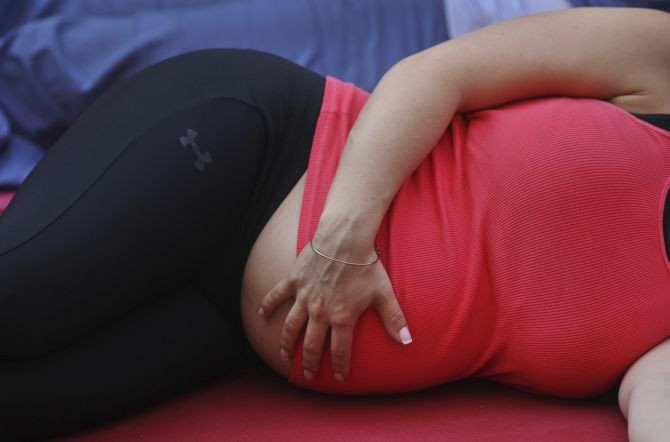City Living is Tough on Mothers: Urban Air Pollution Linked to Low Vitamin D Level in Newborns

Pregnant women exposed to high levels of air pollution are at a risk of giving birth to babies who have a vitamin D deficiency, a new study says.
Vitamin D promotes calcium absorption in the body and is important for bone growth and bone remodeling. Vitamin D deficiency could lead to brittle, misshapen bones.
Other research has associated vitamin D with immune function and cell growth. Unavailability of vitamin D during pregnancy may lead to the baby developing asthma and allergies later.
The study included more than 350 mother-child pairs. Cord blood samples were collected at birth and were analyzed for levels of 25-hydroxyvitamin D or 25(OH)D. The Concentration of 25(OH)D in the blood is the best indicator of vitamin D status in the body.
Researchers found that exposure to air pollution, especially during the third semester, decreased the levels of vitamin D in the newborns. Exposure to levels of nitrogen dioxide and particulate matter less than 10 micro meters during the whole pregnancy, which would be experienced in an urban environment, predicted the Vitamin D level in the new born.
Many studies have used particulate matter 10, or PM10, to study the impact of air pollution because particulate matters of this size can enter the body easily.
"We investigated the associations between gestational exposure to urban air pollutants and vitamin D cord blood serum level. Our findings show for the first time, that exposure to ambient air pollution comparable to current World Health Organization standards might contribute to vitamin D deficiency in newborns," said Nour Baïz, of Intitut National de la Santé et de la Recherche Médicale (INSERM) in Paris, France. Baïz is the lead author of the present study.
Medical Daily had earlier reported that air pollution can increase risk of preeclampsia,a condition where the mother develops high blood pressure, in pregnant women. Air pollution is also associated with increased risk of a still birth.
Some other studies have suggested that pregnant women who don't get enough vitamin D are more likely to give birth to obese children.
The study was published in the Journal of Clinical Endocrinology and Metabolism.



























